Donkey Spurge isn't the nicest of names, but the plant is quite pretty in its own quirky way. It is a wonderful gray-green, with a lovely blue tint that blends with everything. The surprise in spring is the lime-green tops that celebrate new growth as well as any spring tulip.
Join me as we discover this wonderful plant that has been saddled with such an awful name and try to give a little more credit where credit is due.
Caution: When the plant is broken, its milky white sap can cause a rash somewhat akin to poison ivy. Keep children and pets away and wear gloves when dealing with it; try not to break the stems.
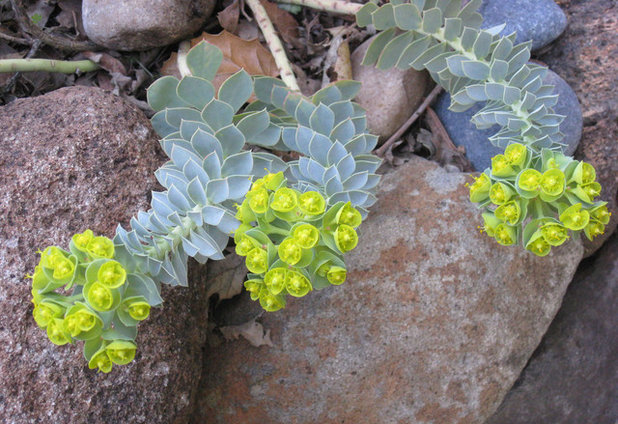
Dig Your Garden Landscape Design
Botanical name: Euphorbia myrsinitesCommon name: Donkey Spurge
USDA zones: 5 to 9 (find your zone)
Water requirement: Low; needs good drainage
Sun requirement: Full sun to light shade
Mature size: 14 inches high and 12 inches wide
Growth rate: Moderate
When to plant: Spurge is tough, so it can be transplanted at any time of year. I like to transplant it in early fall, so it can get established in time to put on fresh new growth by spring.
Benefits and tolerances: Drought tolerant; spring color; blue foliage
Cautions: The sap can cause skin irritation and be toxic if ingested. Donkey Spurge is considered invasive throughout many states in the American West.
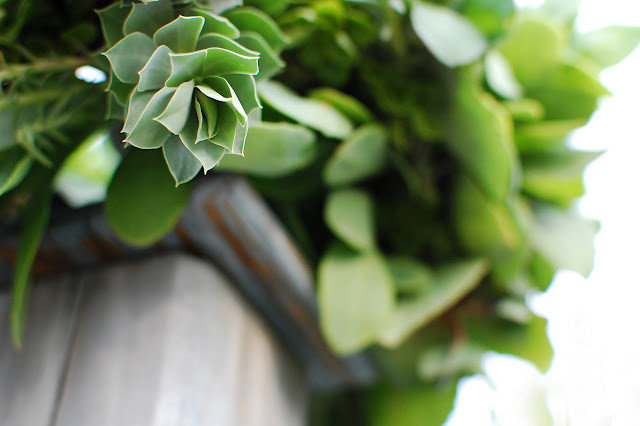
Amy Renea
Spurge also makes a great indoor plant over winter, as long as it is kept out of reach of children and pets. Try it in a high hanging basket.
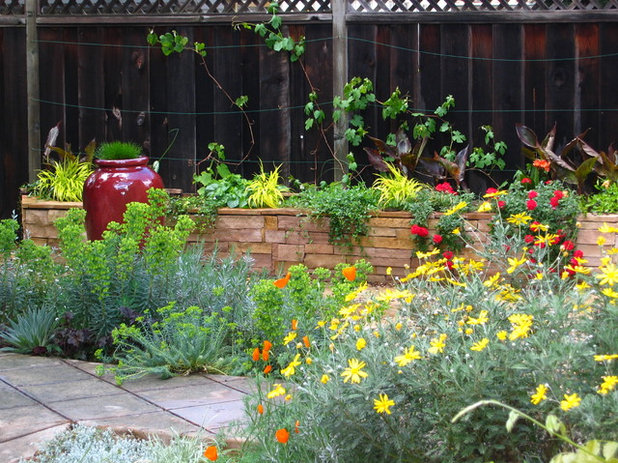
Verdance Landscape Design
How to use it. Spurge's blue color (far left) is just beautiful in any garden and is a fabulous counterpoint to the masses of green plants in a traditional cottage garden.
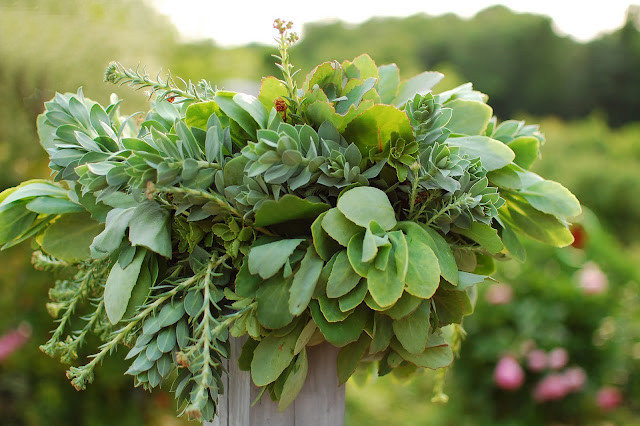
Amy Renea
I utilized spurge in this fun and quirky hamster wheel wreath, but unlike thicker succulents, spurge lasts only a few weeks in an arrangement.
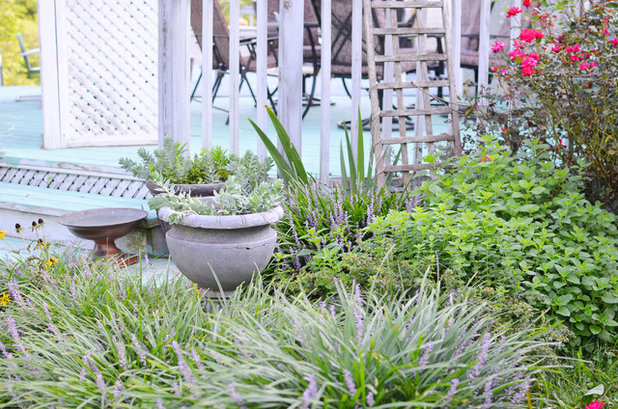
Amy Renea
Spilling over the edges, spurge makes a great waterfall or trailing plant for any pot or arrangement.
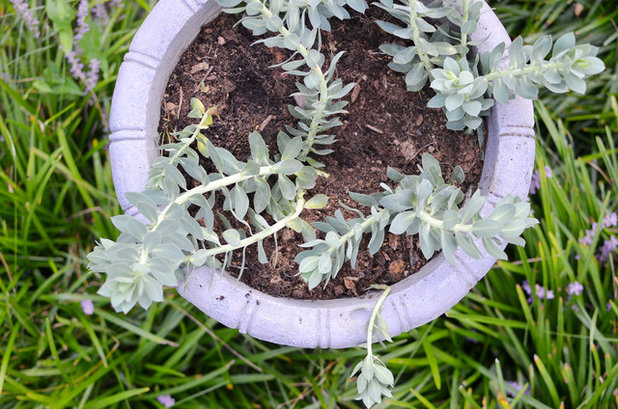
Amy Renea
Please don't plant spurge in the West, where it is invasive, but do consider it for other gardens for a shot of quirky movement, a little bit of blue and a wonderful show every spring. It might be called Donkey Spurge, but it is a lovely plant worth exploring.





